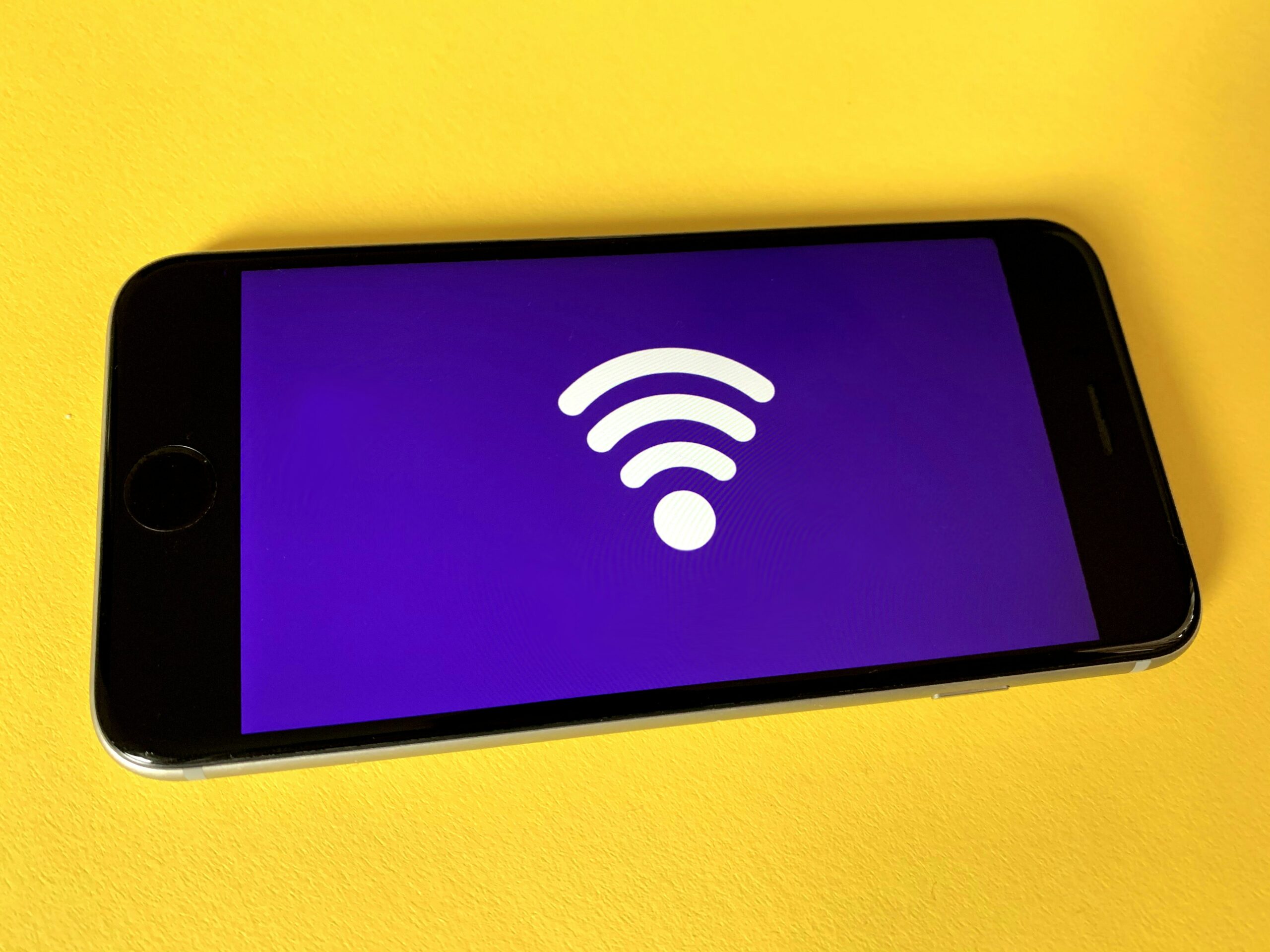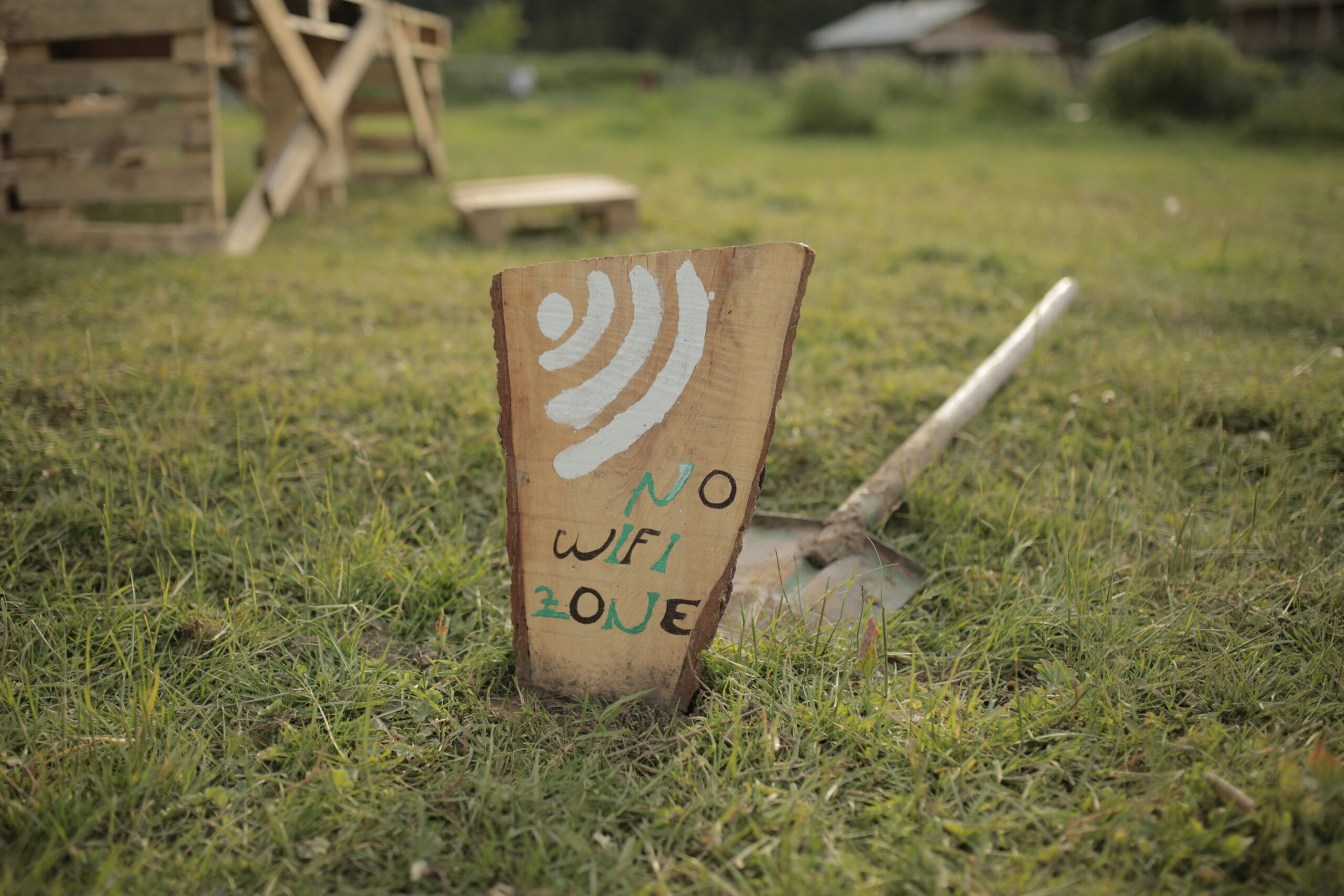American citizens are divided on whether or not offensive content material on-line is taken significantly ample and on which is extra essential on-line: loose speech or feeling secure. Republicans and Democrats have grown additional aside relating to those problems since 2017.
General, 55% of American citizens say many of us take offensive content material they see on-line too significantly, whilst a smaller proportion (42%) say offensive content material on-line is just too ceaselessly excused as now not a large deal, consistent with a brand new Pew Analysis Middle survey of U.S. adults carried out in early September 2020. As well as, about part of American citizens (53%) say it’s extra essential for other people so to really feel welcome and secure on-line, in comparison with 45% who imagine it’s extra essential for other people so to discuss their minds freely on-line, consistent with an previous Middle survey fielded in July 2020.
Pew Analysis Middle carried out those research to know American citizens’ perspectives about whether or not offensive content material on-line is taken significantly ample and on which is extra essential on-line: loose speech or feeling secure. For the analyses on offensive content material, we surveyed 10,093 U.S. adults from Sept. 8-13, 2020, whilst 10,211 U.S. adults have been surveyed from July 13-19, 2020 for the analyses in regards to the steadiness between loose speech and feeling secure on-line.
Everybody who took phase in those surveys is a member of the Middle’s American Traits Panel (ATP), a web-based survey panel this is recruited via nationwide, random sampling of residential addresses. This fashion just about all U.S. adults have a possibility of variety. This offers us self assurance that any pattern can constitute the entire U.S. grownup inhabitants. (See our Strategies 101 explainer on random sampling.) The survey is weighted to be consultant of the U.S. grownup inhabitants by means of gender, race, ethnicity, partisan association, training and different classes. Learn extra in regards to the ATP’s technique.
Listed here are the questions, responses and technique used for this document.
American citizens’ variations over those problems are tied to partisanship. Kind of six-in-ten Democrats and independents who lean Democratic (59%) say offensive content material on-line is just too ceaselessly excused as now not a large deal, whilst only a quarter in their Republican opposite numbers agree – a 34 share level hole. However, 72% of Republicans and Republican leaners say many of us take offensive content material they see on-line too significantly, whilst about four-in-ten Democrats say the similar.
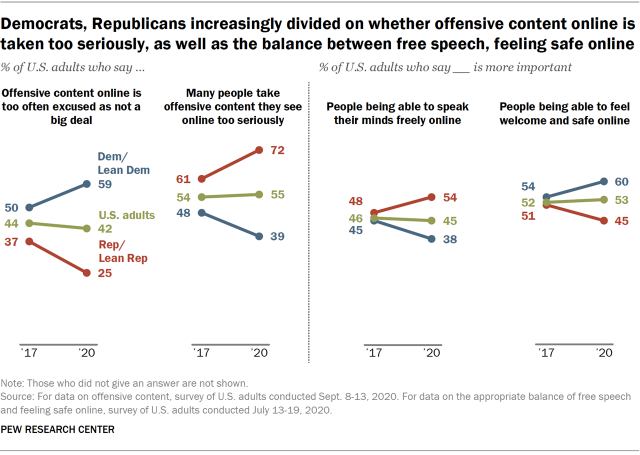
Partisan variations also are provide as of late when asking about feeling secure as opposed to having freedom of speech on-line. Democrats are much more likely than Republicans to assume other people having the ability to really feel welcome and secure on-line is extra essential than other people having the ability to discuss their minds freely on-line (60% vs. 45%), whilst Republicans are much more likely than Democrats to mention other people having the ability to discuss their minds freely on-line is extra essential (54% vs. 38%).
Whilst the whole stocks of the general public supporting each and every point of view are just about similar to when the Middle final requested those questions in January 2017, partisan variations have greater than doubled on this time. The partisan hole between Democrats and Republicans on whether or not they imagine offensive content material on-line used to be taken significantly ample has grown from 13 share issues in 2017 to 33 issues as of late. And whilst Republicans and Democrats held equivalent perspectives about the right steadiness between loose speech and feeling secure on-line in 2017, those partisan variations grew fivefold by means of 2020, from a 3-point hole to a 15-point hole.
Throughout the events, there are ideological variations in partisans’ perspectives on offensive content material. There’s a 16-point hole between the stocks of liberal Democrats and the ones within the celebration with reasonable to conservative perspectives announcing offensive content material on-line is just too ceaselessly excused as now not a large deal (68% vs. 52%). A smaller hole is provide when evaluating conservative Republicans with those that are reasonable to liberal at the factor of whether or not many of us take offensive content material they see on-line too significantly (74% vs. 68%). Conservative Republicans also are much more likely than reasonable to liberal Republicans to mention other people having the ability to discuss their minds freely on-line is extra essential than other people having the ability to really feel welcome and secure on-line (57% vs. 49%).
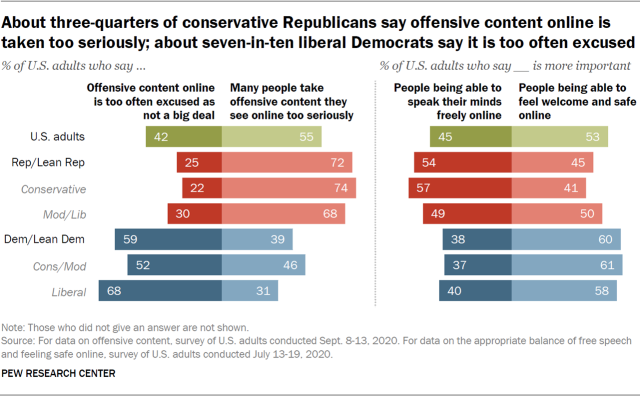
Gender variations also are observed inside of each and every celebration. Republican males stand out for valuing other people having the ability to discuss their minds freely on-line over other people having the ability to really feel welcome and secure on-line. Those Republican males (63%) are much more likely than Republican ladies (44%) and each Democratic males (44%) and girls (34%) to again that concept. In a similar fashion, 76% of Republican males say many of us take offensive content material they see on-line too significantly, in comparison with 67% of Republican ladies who say the similar.
Whilst the stocks of Democrats who beef up this view are a lot smaller, Democratic males are much more likely to voice the view that offensive content material on-line is taken too significantly in comparison with Democratic ladies (43% vs. 36%). Those gender variations at the factor of whether or not other people take offensive content material they see on-line too significantly are in large part because of the variations between conservative Republican women and men (80% vs. 68%) and liberal Democratic women and men (36% vs. 27%); their extra reasonable opposite numbers differed little by means of gender.
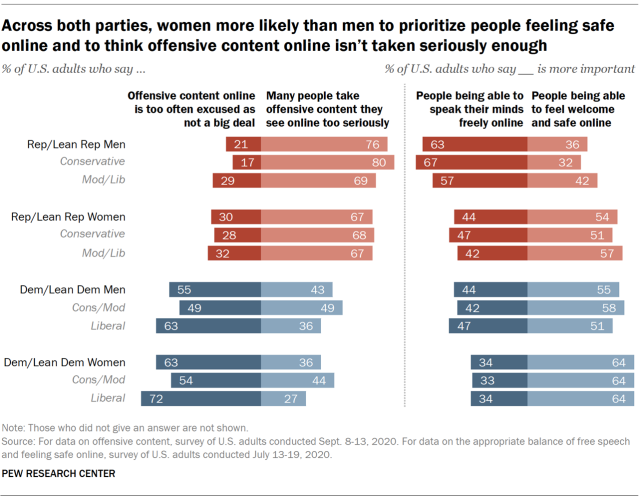
Without reference to political association, ladies in each events are much more likely than their male opposite numbers to assume offensive content material on-line isn’t taken significantly ample and to prioritize other people feeling secure over other people having the ability to specific themselves freely on-line. Even if conservative Republican ladies are regarded as, about part or extra of girls say other people having the ability to really feel welcome and secure on-line is extra essential than other people having the ability to discuss their minds freely on-line.
Along with valuing other people feeling secure on-line and pondering offensive content material on-line isn’t taken significantly ample, each Democrats (77%) and girls (72%) are much more likely to mention social media firms have a duty to take away offensive content material from their platforms as in comparison with Republicans and males (52% and 59%, respectively), consistent with a 2019 Middle survey.
Observe: Listed here are the questions, responses and technique used for this document.
CORRECTION (October 2020): The technique segment has been up to date to mirror the proper cumulative reaction price. Not one of the find out about findings or conclusions have been affected.
Supply Through https://www.pewresearch.org/fact-tank/2020/10/08/partisans-in-the-u-s-increasingly-divided-on-whether-offensive-content-online-is-taken-seriously-enough/
